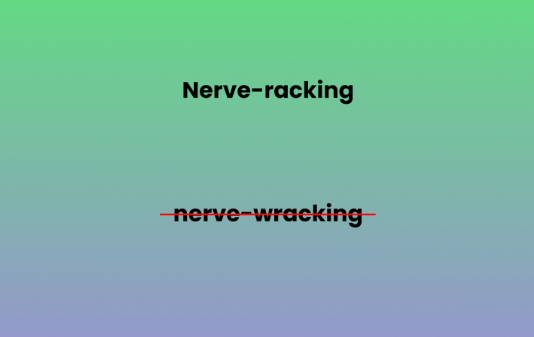We all use phrases in our everyday lives, but how often do we stop to think about whether we’re using them correctly? Many of us might be mispronouncing or using English phrases incorrectly without even realizing it. In this blog, we’ll explore some of the most commonly mispronounced English phrases and how to pronounce them correctly. So, read on to find out if you’ve been saying things wrong all along!
First come, first served
The phrase “First come, first served” is one of the most commonly mispronounced phrases in English. This comes as no surprise since the phrase itself is actually quite long. However, it’s important to understand the correct pronunciation of this phrase in order to use it correctly in everyday conversations.
The phrase “First come, first served” is a type of phrase known as an adage. An adage is a saying that conveys a moral or principle. In this case, the moral of the phrase is that those who arrive first get the opportunity to be served or receive what they are hoping for.
The correct pronunciation of “First come, first served” is “first come, first ser-ved.” The emphasis should be placed on the second syllable, which is pronounced: “ser.” It’s important to note that this phrase is not pronounced as “first come first serve.” This mispronunciation is quite common, but it is incorrect and can lead to confusion.

Peace of mind
Peace of mind is an expression that has been used to describe a feeling of contentment and mental calmness. It’s a state of being that many people strive to attain. Unfortunately, this phrase is often mispronounced as “piece of mind”. This changes the entire meaning of the phrase, as it implies that peace of mind can be broken down into individual pieces.
In reality, peace of mind is a holistic term that encompasses an entire state of being. It is not something that can be broken down into individual components or pieces.

For all intents and purposes
For all intents and purposes is a phrase that is commonly mispronounced as “for all intensive purposes”, but it is important to note that this is not the correct way to say it. As the two phrases have completely different meanings, it is important to ensure that you are saying the phrase correctly.
For all intents and purposes, it is a phrase that is typically used to indicate that something is meant to be taken as true and valid. It is used to emphasize that something is regarded as having a specific purpose and is used to describe something as being true in all practical matters. For example, someone could say, “for all intents and purposes, I am the leader of this group.”
On the other hand, for all intensive purposes is a phrase that is used to describe something as being done with extreme effort and attention to detail. It is typically used to emphasize the difficulty or intensity of the task being performed. For example, someone might say, “I worked hard all night, for all intensive purposes.”

Read Also: How to pronounce the most commonly mispronounced words in English
Statute of limitations
The phrase “Statute of Limitations” typically refers to a law that sets a limit on the amount of time that a person has to file a lawsuit or other legal action. It is a way for the legal system to ensure that matters are not dragged on indefinitely and that legal actions are taken within a reasonable period of time.
“Statue of Limitations”, on the other hand, has an entirely different meaning. It refers to a memorial or artifact that serves as a reminder of a past event, usually one of historical importance. Therefore, if someone were to mispronounce “Statute of Limitations” as “Statue of Limitations”, they would be referring to something entirely different.

Case in point
Case in point is a phrase that is commonly used in everyday conversation and in the business world. It’s a phrase that can be used to signify a clear example, making an argument more convincing. Unfortunately, many people make the mistake of mispronouncing the phrase. Instead of saying “Case in point,” they say “Case and point”.
This seemingly minor mistake can actually change the meaning of the phrase, making it much less effective. Instead of providing a clear example, “Case and point” is essentially just repeating the point you were already trying to make. This can make it sound more like a statement than an argument.

Nip it in the bud
Nip it in the bud is a popular phrase used to describe the act of quickly resolving a problem or issue before it can escalate and become much bigger. The phrase is often used in the context of parenting when a parent is trying to nip an issue in the bud before it becomes a much bigger problem.
The phrase is correctly pronounced “nip it in the bud”, not “nip it in the butt”. This small change completely changes the meaning of the phrase and can make all the difference in the context of a situation.

Play it by ear
Play it by ear is a common phrase that is often mispronounced as play it by year, which changes the meaning of the phrase completely. The phrase ‘play it by ear’ refers to something done without prior planning or forethought. It implies that the individual taking action will decide what to do in the moment and as the situation develops.
The phrase ‘play it by year’, on the other hand, implies that the individual is taking action based on their experience and knowledge over a period of time rather than the immediate situation. This phrase is often used to refer to long-term decisions or those that take a lot of forethought and planning.

Read Also: 30 Most Confusing English Words
It is important to be aware of the correct pronunciation of these two phrases, as they are often used in different contexts.
Nerve-racking
The phrase “nerve-racking” is often used to refer to feeling a sense of anxiety or tension due to a situation or event. It can be used to describe a situation that is difficult to manage or deal with. For example, a job interview can be a nerve-racking experience for many people.
The phrase “nerve-wracking” refers to something that is physically stressful, such as an intense workout or a long run. It is the wrong word to use if you are trying to describe an emotionally-draining experience.
It’s important to be aware of the difference between “nerve-racking” and “nerve-wracking” so that you don’t accidentally use the wrong word when describing a situation.

Hunger pains
Hunger pains are the correct term for the physical sensation of feeling hungry, usually in the stomach or abdomen. It is a strong, gripping feeling that can be uncomfortable and difficult to ignore. Hunger pains can be caused by a variety of factors, such as not eating for a long period of time, eating too much, or eating unhealthy foods.
On the other hand, hunger pangs refer to a more psychological experience. It is the feeling of being psychologically hungry, even when one is not physically hungry. Hunger pangs can be caused by a variety of factors, such as emotional triggers, stress, or the anticipation of food.

Beck and call
The phrase “beck and call” is one of those commonly mispronounced phrases, with many people mistakenly saying “beckon call.” While this may seem like a minor mistake, it actually changes the meaning of the entire phrase.
The phrase “beck and call” is an idiom that has been around for centuries. It is used to describe a situation where someone is in complete control of someone else and can make them do whatever they want. A person who is at another person’s beck and call is essentially a servant or slave to that person because they have to do whatever they are told.
When someone mispronounces the phrase as “beckon call,” it completely changes the meaning. “Beckon” means to signal or summon someone, so the phrase would then mean that someone is signaling or summoning someone to be their servant or slave.

Biting my nails
The phrase “biting my nails” is often mispronounced as “biting my fingernails”. This mispronunciation can cause confusion, as it changes the meaning of the entire phrase. Biting your nails is the act of biting your fingernails or toenails, while biting your fingernails refers to biting your actual fingers.
It’s important to understand the distinction between the two phrases. Nail-biting leads to a variety of problems with the nails, including infection, cracking, and discolouration. Biting your fingers, on the other hand, can lead to serious health implications such as bleeding and infection.

Read Also: Some Of The Common Mistakes Every English Learner Makes
Champing at the bit
The phrase “Champing at the bit” is used more figuratively to describe someone who is so eager and impatient for something to happen that they can barely contain themselves. Whether it’s a student waiting for their exam results, an athlete waiting for a big game, or a couple waiting to hear if they’re going to receive a job offer, the phrase is used to describe that feeling of intense anticipation and eagerness.
In contrast, “Chomping at the bit” has an altogether different meaning. It is used to describe someone who is eager to take action, to get something done, and often in a slightly aggressive or impatient way. For example, you could use the phrase to describe someone who is eager to get started on a project or task or someone who is eager to make their opinion or point of view known.

Sneak peek
When correctly pronounced, “sneak peek” describes the act of viewing or previewing something before the official release or reveal. It is typically used to describe a special look at a product, such as a movie trailer before it is made available to the public. The term is often used in the entertainment industry, but it can also apply to business, technology, and other areas.
The phrase “sneak peak,” on the other hand, means to get a general overview or preview of something but not necessarily have a full view of it. It can describe getting a bird’s eye view of a landscape or a brief overview of a topic of discussion before delving into it in more detail.

All of a sudden
One of the most common English mistakes is mispronouncing the phrase “all of a sudden.” This phrase is often mispronounced as “all of the sudden.”
The mistake of mispronouncing “all of a sudden” may seem insignificant—after all, it’s just a phrase—but it can actually change the meaning of the entire sentence.
That’s because “all of a sudden” implies that something happens quickly or unexpectedly, while “all of the sudden” implies that something happens over a period of time.

Exact Revenge
The phrase “exact revenge” refers to a situation when someone is seeking to punish another person for wronging them. It’s a way of retaliating against someone who has caused you pain or suffering. It’s a phrase that has been used throughout history to describe a situation of retribution or revenge.
When someone says “extract revenge”, however, they are actually referring to a situation where someone is trying to get something from another person. This could be anything from money to information or an apology. In this sense, “extract revenge” is not a phrase of punishment but rather a phrase of manipulation.
It’s important to understand the difference between exact revenge and extract revenge because they have two very different meanings.

Foolproof
The term “foolproof” means something that is designed so it cannot fail or be taken advantage of and that it cannot be outsmarted by someone who is not knowledgeable in the area. When someone mispronounces the term, it changes the meaning to something that is completely different.
On the other hand, if something is “full proof”, it means it’s totally free of any risk or danger.

To summarize
In conclusion, knowing the correct pronunciations of common English phrases is important. This blog post has provided helpful information regarding the correct pronunciation of some of the most commonly mispronounced phrases in the English language. You can improve your English speaking skills using an online free language learning app Zoundslike. Thank you for reading, and we hope this blog has been of help.








